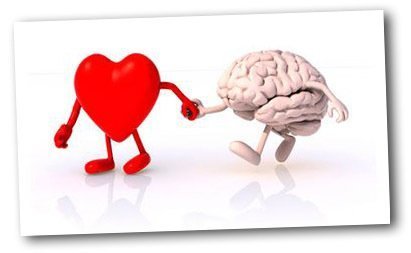Since antiquity, considering the mind and body as separate entities, has been one of the foundations of western philosophy. In Europe there was no alternative thinking until the 17th century, when Spinoza confronted Descartes’ approach, (I think therefore I am), arguing that the mind and body are but two manifestations of one same human essence and that reason and feeling are inseparable. This is something that in the West sounds like oriental philosophy, prior to Plato by the way, but it also appears in other world cultures. Here, Descartes was immortalized and his rationalist doctrine marked European philosophy during the following centuries.
However, recent advances in the human brain indicate that the separation of irrational and rational functions is far from clear. According to Dr. Damasio, (whose first book is titled Descartes’ Error), emotions, (chemical and neuronal responses to stimuli) and feelings, (the conscious evaluation of these emotions), play a crucial role in thought. It appears that our feelings help us to filter options and guide us in the right direction for decision-making.
The mental process thus requires inputs from both the brain and body. The body provides the basic material for cerebral representations and the brain registers “somatic markers”, for love, hate and anguish, as well as for solving scientific problems or for the creation of a new artefact. They are all based on neuronal events that occur in the same regions of the brain. The heart is not then an enemy of reasoning, but a fundamental ally. A healthy and trained evaluation of emotions enables robust reasoning. A childhood rich in the interpretation of emotions (not in simple stimuli), will enable us to better reason in adulthood. So the immediacy of emotions and the brevity of communication that new technologies are bringing, can be perceived as a threat to the intellectual development of subsequent generations.
And what does all this have to do with our industry? The implications in the development of leisure facilities are multiple.
From an artistic point of view, they justify creativity as a great expression of human consciousness, a leap forward in our evolution as a species. A purely dualistic monkey, would probably not have painted caves.
From a formal point of view, it makes biological sense of the fact that perception of beauty is closely linked to mathematical formulae such as the golden ratio, which appears in architecture, painting, music and in our own faces. If something makes sense to the head and heart, that is when it attracts us.
From a design viewpoint, it justifies the harmony of emotional and rational criteria in shaping user experiences, since as humans we become aware of our environment in a holistic way, not just through the five senses, but also through reason.
The heart has its reasons which reason knows not.
(Blaise Pascal 1623-1662)








